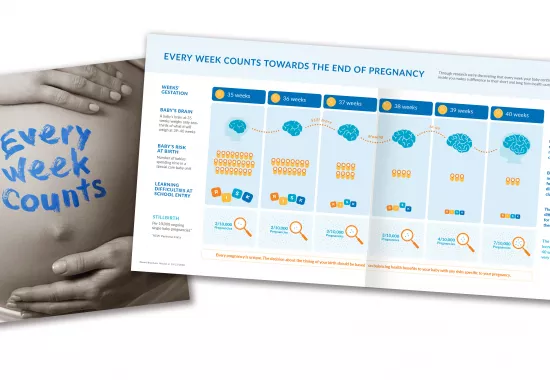The Kolling’s Women and Babies Research team is calling for a reduction in the number of early births, with the latest research highlighting the benefits of labour as close to 40 weeks as possible.
Twenty years ago, the majority of women gave birth at 40 weeks. Today it’s between 38 and 39 weeks and continuing to get earlier.
This trend is due to the growing number of planned early births at 36, 37 and 38 weeks, either by induction of labour or by planned caesarean section prior to the onset of labour.
Women and Babies Research Director Professor Jonathan Morris said we now have increasing evidence around the benefits of babies being born as close to 40 weeks as possible.
“There’s very important development in the last few weeks of pregnancy,” he said.
“A baby’s brain for instance increases in weight by 50% in the last 4-5 weeks of pregnancy.
“For every week that a baby is born earlier than 39 weeks, there is a small but significant increase in the risk of the child performing less well in school assessments.
“Our research indicates that for every week a baby can remain safely inside their mother’s womb, their short and long-term health and developmental outcomes improve.”
Professor Morris acknowledges the circumstances around each birth need to be considered.
“Any benefits of prolonging pregnancy need balancing against the small risk of stillbirth which increases with gestational age from 2 per 10,000 ongoing pregnancies at 35 weeks of gestation up to 7 per 10,000 ongoing pregnancies at 40 weeks of gestation.
“With new research data now available, we would like to see women offered additional information around the risks of stillbirth, and we have now reviewed the information provided by our research team across Australia.
“It’s important for women and their healthcare providers to be able to make informed decisions based on the latest evidenced-based data and research.”
Further information is available through the ‘Every Week Counts’ campaign brochures and website. www.everyweekcounts.com.au
